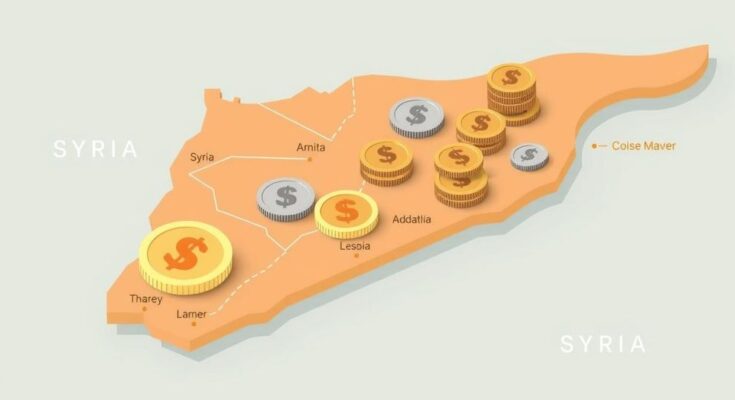Germany has pledged 300 million euros in aid to Syria as the EU prepares for a donor conference aimed at supporting the country’s recovery after the removal of Bashar al-Assad. The conference will also mark the first participation of Syrian authorities, led by interim foreign minister Assaad al-Shibani. The humanitarian crisis in Syria remains severe, with millions needing aid and the economy in ruins due to years of war and sanctions.
On Monday, Germany announced an additional pledge of 300 million euros in aid for Syria, as part of efforts to support the country ahead of an EU donor conference. German Foreign Minister Annalena Baerbock emphasized that the funds would be allocated to the United Nations and select organizations to assist both the people in Syria and the surrounding region. This commitment comes as part of a larger EU initiative to gather financial support for Syria’s rebuilding after the removal of Bashar al-Assad.
The upcoming donor conference in Brussels will mark the first occasion where Syrian authorities will be present, represented by interim foreign minister Assaad al-Shibani. Turkish Deputy Foreign Minister Nuh Yılmaz will also participate. The aim of the conference is to help Syria achieve stability following fourteen years of civil conflict, which has resulted in millions of refugees fleeing the country.
An EU official shared that the conference’s objective is to support Syria while emphasizing a successful transition in governance. Historical donor drives have primarily focused on refugee support without engaging with the Assad regime. However, this year’s meeting is deemed an opportunity for renewal. The official cautioned that the “window of opportunity” is not vast, necessitating immediate action to ensure assistance does not fall short.
Syria remains in dire need, with extensive regions devastated by war and an economy heavily impacted by international sanctions after the civil war’s onset. The United Nations estimates that under current recovery rates, Syria will take over fifty years to restore its pre-war economic status. Presently, around 16.7 million individuals require humanitarian assistance.
The new leaders in Syria, led by Ahmed al-Sharaa, are pressing for aid to facilitate recovery. The EU has relaxed sanctions on key economic sectors, yet insists on adherence to inclusive transitional commitments from the authorities. Noteworthy positive developments from Damascus include Sharaa’s signing of a constitutional declaration outlining a five-year transition plan emphasizing women’s rights and freedom of expression.
Nevertheless, a recent surge in violence has stirred doubts about the stability of the new government, particularly following incidents on Syria’s coast where nearly 1,500 Alawite civilians were reportedly killed. Last year’s donor conference successfully raised 7.5 billion euros; however, this year’s efforts may be undermined by speculation around a reduction in U.S. foreign aid. With the U.S. traditionally being a significant donor, EU officials express hopes that Arab states can increase contributions to fill potential funding voids.
In summary, Germany’s recent pledge of 300 million euros represents a significant commitment to assist Syria amid ongoing challenges. The upcoming EU donor conference aims to gather support for Syria’s recovery and stability as it navigates a tumultuous transition. While the situation remains precarious, international collaboration and funding are crucial for addressing the humanitarian crisis and rebuilding efforts following years of conflict. The involvement of both Syrian authorities and various international actors highlights the evolving dynamics in efforts to rebuild the nation and support its people.
Original Source: www.hurriyetdailynews.com




